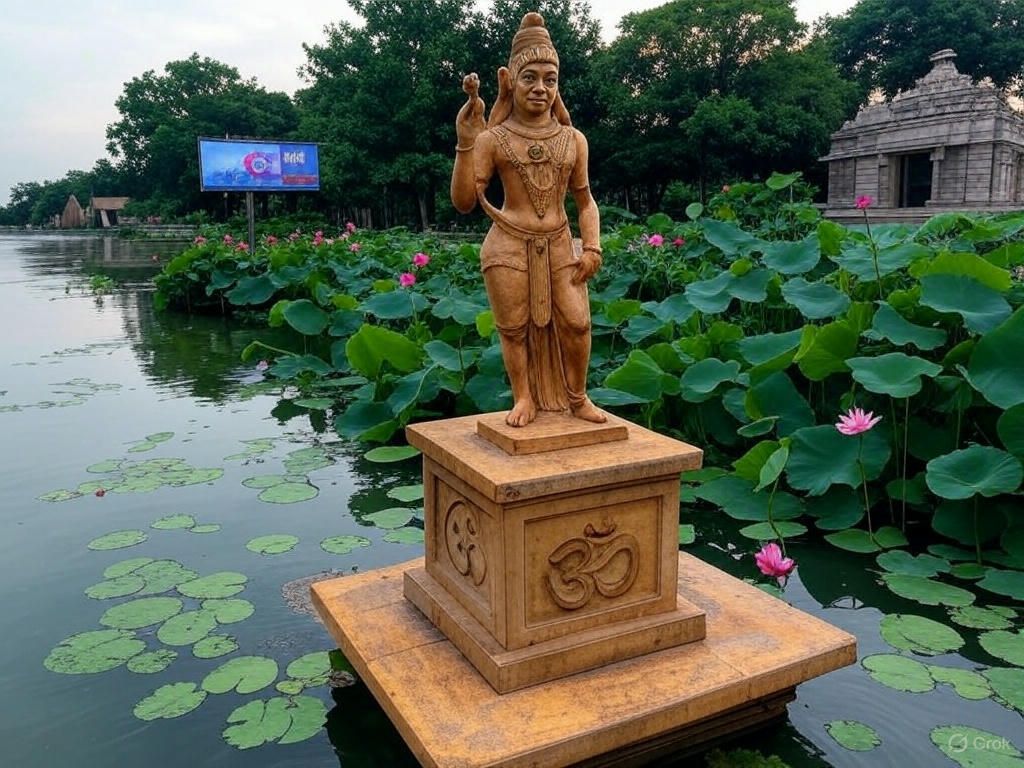Subscribe to Trending News Wala
The Hindu religion, often regarded as the world’s oldest spiritual tradition, carries a significance that resonates across centuries and continents. With roots tracing back over 4,000 years, it’s more

The Hindu religion, often regarded as the world’s oldest spiritual tradition, carries a significance that resonates across centuries and continents. With roots tracing back over 4,000 years, it’s more than just a faith—it’s a way of life that shapes the moral, cultural, and spiritual fabric of millions. The importance of Hindu religion lies in its timeless teachings, diverse practices, and its ability to adapt while staying true to its core essence. From the sacred chants echoing along the Ganges to the quiet meditations in homes worldwide, Hinduism offers a path to inner peace and universal harmony.
One of the key reasons for the importance of Hindu religion is its profound spiritual wisdom. Ancient texts like the Vedas, Upanishads, and Bhagavad Gita serve as guiding lights, addressing life’s deepest questions—Who am I? What is my purpose? How do I find peace? These scriptures emphasize self-discovery and the pursuit of Moksha, or liberation from the cycle of birth and death. Unlike rigid doctrines, the Hindu religion encourages personal exploration, allowing individuals to connect with the divine in their own unique way, making it a deeply personal and liberating experience.
The Hindu religion also stands out for promoting universal values that remain relevant in today’s fast-paced world. Concepts like Dharma (righteous duty), Ahimsa (non-violence), and Karma (the law of cause and effect) form the ethical backbone of the faith. These principles inspire compassion, honesty, and accountability, extending respect not just to humans but to all forms of life. In a time of global conflict, the importance of Hindu religion shines through its message of unity in diversity—acknowledging multiple paths to the divine, fostering tolerance, and encouraging peaceful coexistence.
Beyond spirituality, the importance of Hindu religion is evident in its rich cultural contributions. Ancient Festivals such as Diwali, the festival of lights, and Holi, the celebration of colors, bring people together in joyous unity, strengthening community bonds. The intricate architecture of temples, the soulful melodies of bhajans, and the artistry of classical dance forms like Bharatanatyam all reflect the Hindu religion’s deep influence on culture. These traditions preserve history while inspiring creativity, making Hinduism a living bridge between the past and the present.
Another vital aspect of the importance of Hindu religion is its adaptability. While rooted in ancient practices, it embraces modern contexts, allowing followers to practice their faith in bustling cities or quiet villages alike. Whether through elaborate rituals like puja or simple daily prayers, Hinduism offers flexibility that suits every lifestyle. This resilience ensures that the Hindu religion remains a source of strength and solace, no matter how the world changes.
The Hindu religion also plays a crucial role in environmental consciousness. Its reverence for nature—seen in the worship of rivers like the Ganga, trees like the Peepal, and animals like the cow—instills a sense of responsibility toward the planet. In an era of climate crises, this aspect of the importance of Hindu religion highlights its forward-thinking ethos, urging sustainable living long before it became a global movement.
Ultimately, the importance of Hindu religion lies in its holistic approach to life. It’s not just about rituals or gods—it’s about understanding oneself, living ethically, and finding balance. Whether you’re seeking spiritual growth, cultural richness, or a moral compass, the Hindu religion offers a timeless framework that uplifts individuals and societies alike. In a world searching for meaning, Hinduism stands as a beacon of wisdom, compassion, and unity, proving its relevance for generations to come.
The importance of Hindu religion in daily life lies in its practical guidance through concepts like Dharma (duty) and Karma (action). It encourages ethical living, mindfulness, and balance, helping individuals navigate challenges with purpose and peace. Daily practices like prayer or meditation foster a deeper connection to spirituality.
The Hindu religion promotes peace through teachings like Ahimsa (non-violence) and the belief in multiple paths to the divine. This acceptance of diversity reduces conflict and fosters tolerance, making its emphasis on unity a key aspect of its importance of Hindu religion in a multicultural world.
Hindu scriptures like the Vedas and Bhagavad Gita are significant because they offer timeless wisdom on life, morality, and liberation. Their focus on self-realization and ethical conduct underscores the importance of Hindu religion as a source of spiritual and intellectual growth for millions.
The Hindu religion shapes culture through vibrant festivals like Diwali and Holi, temple architecture, and art forms like classical dance. These traditions preserve heritage and bring communities together, highlighting the importance of Hindu religion in enriching societal bonds and identity.
Yes, the Hindu religion is inclusive and doesn’t require formal conversion. Its universal principles—like compassion and self-discovery—appeal to people globally. The importance of Hindu religion lies in its adaptability, welcoming anyone seeking spiritual insight regardless of background.
Nature is sacred in the Hindu religion, with rivers like the Ganga and animals like the cow revered as divine. This reverence promotes environmental care, showcasing the importance of Hindu religion in encouraging sustainable living and respect for the planet.
The Hindu religion stands out with its lack of a single founder, its vast array of deities, and its focus on personal spiritual paths. This flexibility and diversity underline the importance of Hindu religion as a unique, evolving tradition that embraces individual freedom.
Moksha, or liberation from the cycle of rebirth, is a core goal in the Hindu religion. It represents ultimate freedom and union with the divine, reflecting the importance of Hindu religion in guiding followers toward a higher purpose beyond worldly attachments.
Writer and content creator
Log in to share your thoughts and engage with other readers.